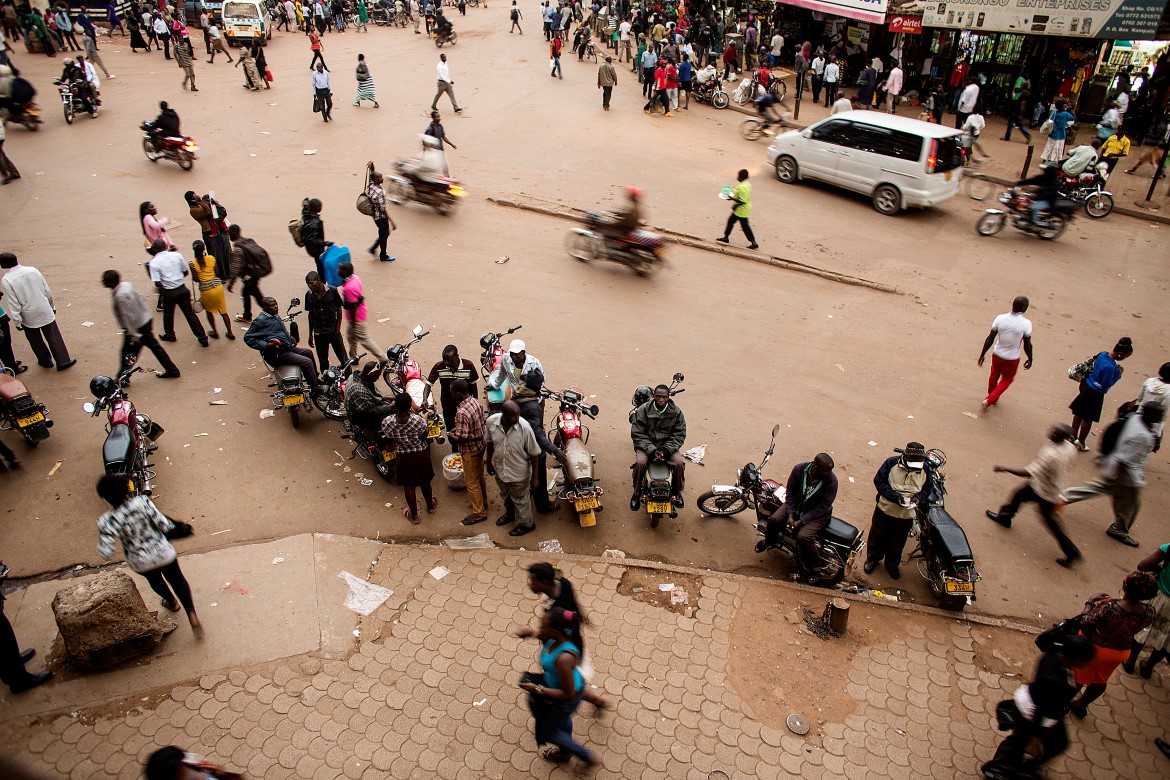
New evaluation programme: the pandemic calls for new ways of working
The revised evaluation programme builds on the thematic priorities of private sector development, climate and environment, humanitarian assistance and aid to fragile states and regions, but the new element is that in the time ahead, the Evaluation Department will undertake more ongoing real-time evaluations, says Håvard Mokleiv Nygård, Director of Norad’s Evaluation Department.
Real-time evaluation of a new UN fund
Last year, Norway took the initiative to establish a new UN fund (UN COVID-19 Response and Recovery Multi-Partner Trust Fund), whose purpose is to ensure a coordinated UN effort to help countries deal with the ramifications of the COVID-19 crisis.
We will now proceed with an evaluation of the fund’s efforts. This follows in the wake of a pilot study of the COVID-19 response completed this spring, which the Evaluation Department initiated and participated in. Currently, there is no system for performing so-called ‘system-wide’ evaluations in the UN, i.e. a system that could, for example, investigate what the UN as a whole has achieved in a given country. The various multilateral agencies all have their own evaluation systems. This evaluation of the COVID-19 fund is therefore important, not only as an evaluation of this work, but also because it shows how such ‘system-wide’ evaluations can be undertaken, says Håvard Mokleiv Nygård.
New working methods
The Evaluation Director notes that the pandemic has complicated the collection of data, but the situation has also provided an opportunity for valuable testing and the development of methodological approaches to data collection, including the use of machine learning and satellite data.
- New working methods have been developed that facilitate the inclusion of the Global South. For example, webinars have helped increase participation and representation from the Global South. Moreover, in a climate perspective, the reduced travel activity has helped achieve Norad’s goal to cut air travel.
- We nevertheless look forward to being able to travel again, to better understand the context of our work and to be present where events unfold. We will, however, take with us our new experience of virtual meetings with partners and stakeholders, says the Evaluation Director.
Humanitarian efforts
The programme builds on the overarching topics from previous programmes, including humanitarian assistance, which is a key priority in Norwegian development policy with a total budget of more than NOK 5.5 billion in 2021. In addition, large sums are devoted to long-term development efforts in fragile states and regions.
- An evaluation which is currently starting up will look at Norway’s efforts in the Sahel region, says the Evaluation Director. Norway has been engaged in a multi-year programme in the Sahel region, which was concluded last year. The Sahel is an especially difficult region in which to work and achieve good results. As Norway now plans for a new programme in the Sahel, it will be interesting and important for us to see what has and hasn’t worked in the previous programme. We will also assess whether it will be possible to undertake a real-time evaluation of the new Sahel strategy. This will provide an ongoing assessment and show us how further efforts can be undertaken, where we are off the mark and where the efforts are well targeted, Håvard Mokleiv Nygård explains.
Transition from humanitarian to long-term efforts
An evaluation of how Norwegian development cooperation handles the transition between humanitarian work and long-term aid is another key element of the revised programme. The evaluation programme therefore plans to identify and analyse the ways in which Norwegian development aid addresses the transitions between humanitarian crisis relief, peace and reconciliation efforts, and long-term aid.
- There is an overlap in the portfolios of countries that receive humanitarian relief and those that go on to receive long-term aid. This so-called ‘humanitarian nexus’ is a problem area that we have been told urgently needs to be evaluated. This will be the first evaluation of this thematic area from the Norwegian side, says the Evaluation Director, who adds that this autumn will see the anniversary of The Grand Bargain, which will also focus on collaboration and efficiency enhancement among aid agencies.
Climate and environment are key topics
Climate change and poor management of terrestrial and marine environments render people more exposed to humanitarian crises and could undermine the efforts to achieve the SDGs. Since support for renewable energy – solar, wind and hydroelectric power – is a key priority for Norwegian development aid, one of the evaluations in the programme will focus on reductions of greenhouse gases and assess the extent to which the renewable energy programme has led to such reductions.
Webinar 26 August
The programme will be presented at a webinar on knowledge in development aid on 26 August, where the Evaluation Department will also present its annual report.
